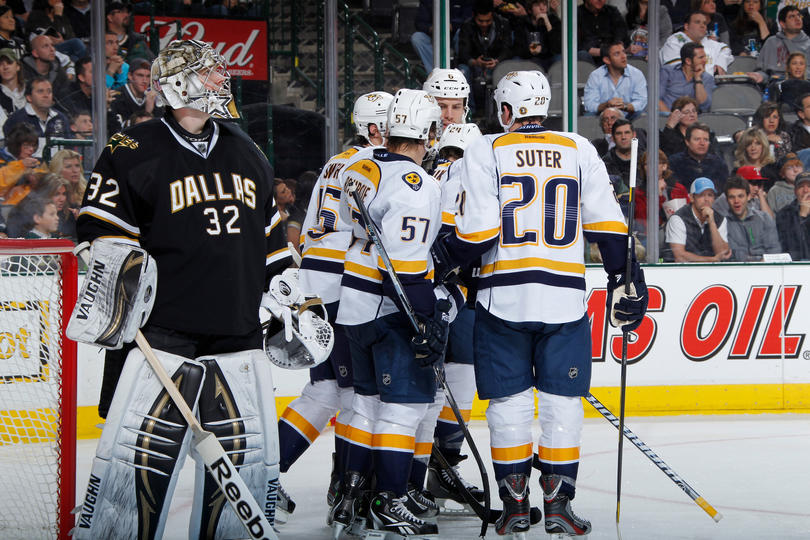It’s a reminder of how uncertain football really is. Fans like to count the stars and project, but it isn’t as simple as adding the measurables and extrapolating the stats. Nothing’s guaranteed.
This morning Rob Moseley of the Register-Guard reported reserve tight end Brandon Williams has to give up football due to a medical condition. Moseley wrote:
Williams, the backup to senior starter David Paulson, has been diagnosed with a narrow spinal canal, and has a bulging disc in his back that is exacerbating the problem. Williams said he could risk paralysis by continuing to play contact sports, and that the proximity of the condition to his diaphragm could also threaten his breathing in the event of a devastating hit.
In this case quitting was the right decision, a courageous one the promising tight end made with his doctors. He’ll keep his scholarship and he can get his degree. He retires with two career catches for 48 yards in one injury-marred year. Williams broke a hand in the Tennessee game after rambling down the left sideline with a 24-yard catch, and Duck fans never got to see how good he could be. He had good size and speed at 6-4 240. He was a hard worker who could frequently be seen running extra routes after practice.
The JC transfer had good hands in traffic and a willingness to go down the seam with a safety drawing a bead on him, but now that’s clearly too risky. It’s a bitter irony that a young man with such a chiseled physique and tremendous work habits could be betrayed by his body and the vagaries of a violent sport. Like Erik Ainge or Nate Costa, he’ll have to find another way to score touchdowns, another way to channel his talents and define himself.
There’s an old Basuto proverb that says it best: “If a man does away with his traditional way of living and throws away his good customs, he had better first make certain that he has something of value to replace them.” Brandon Williams didn’t throw away football until he was forced to, but he has to find something of value. He’s known about this since May, as have the Oregon coaches, so he’s well along in the process of becoming the man he has to be without the sport. It’s a reminder also to fans, in the equation of what athletes are getting and what they produce, that they alone assume the risk of permanent injury in a three billion dollar game.
On the field, the Ducks have to adjust and reload at the tight end position and in their receiver corps. In the Spring Game Chip Kelly showed some new wrinkles like power formations, two-tight end sets and the use of an H-back lead blocking on run plays, but now to use those options, young tight end Curtis White and Colt Lyerla have to advance to 200-level courses in helmets and pads. White, a redshirt freshman who was a four-star recruit out of Churchill High, has to shake off the injury bug. Lyerla has to learn his assignments well enough to execute them at eight seconds a play.
Both the young guys are incredibly promising. But now there is no extra time for them to grow up. Oregon plays LSU in 43 days, and they want to be able to use their whole offense. With a young receiver corps, being able to go double tight ends was a luxury. Williams was a 240-insurance policy with a huge upside as a football player, with the kind of talent that could have blossomed into 25-30 catches and a half dozen touchdowns. Now those touches have to be found elsewhere in the offense. Lyerla is one option, and he showed good hands in the spring game with three catches for 37 yards. White was banged up and couldn’t play.
The loss of Williams adds to the pressure to develop the other weapons in the Oregon offense. The fleet four newcomers at wide receiver have to sharpen each other until at least two of them are battle-ready. Kenjon Barner, Josh Huff and Lavasier Tuinei have to lead this group and make plays. De’Anthony Thomas has to find ways to show he’s ready to make the huge leap from dominating Los Angeles prep football to competing against the best defenders in the PAC-12. Don’t doubt him; his talent is that rare and electric.
Finally, the Ducks need David Paulson to be the senior star he’s poised to become. Paulson has been a solid contributor in the Duck offense for two seasons, but this year he needs to be the durable, go-to, reliable inside presence he was against UCLA, or he was when he hauled in a 33-yard pass from Darron Thomas in the national championship game, on 3rd and 18 from the Oregon 8. In the fourth quarter, trailing by 8. The Ducks need Paulson to become the definition of clutch, the heart of determination in the blur offense. He needs to get the tough yards in the air that LaMichael James gets on the ground, because as good as the Ducks are running the football, they won’t be successful without balance and a passing attack that keeps safeties out of the box. Paulson was important anyway, but now he has to do more on his own.
The coaches knew about Williams’ condition and subsequent retirement three months ago, and they’ve been game-planning for the considerable athletic assets they have. Chip Kelly told Moseley, “Brandon has worked hard to overcome this latest setback but it is in his best interest to step away from the game at this time. His presence will certainly be missed.”
He’ll be missed, but there’s no time for mourning. His teammates have to line up and face the LSU Tiger defense in 43 days.
Add The Sports Daily to your Google News Feed!
